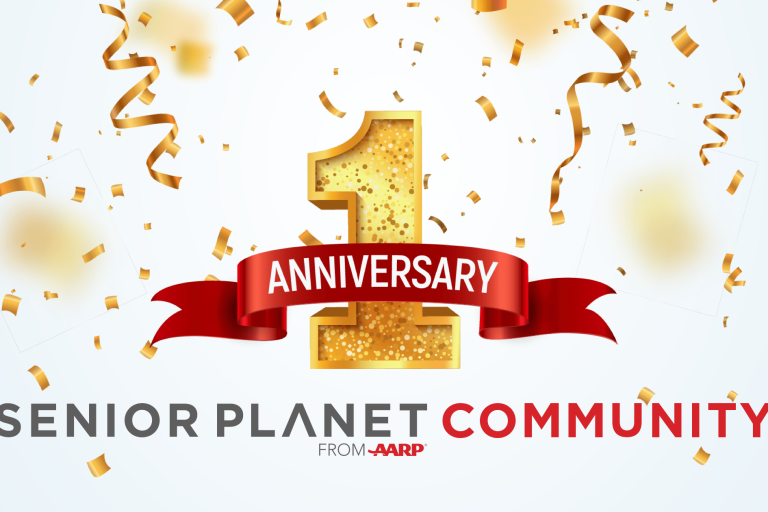NPR’s radio program All Things Considered highlighted OATS as one of the few organizations supporting older adults in learning to identify fake news as part of a broadcast about disinformation and the election. The audio features Senior Planet Montgomery County Program Manager Bre Clark and several Senior Planet members as they participate in Senior Planet’s new workshop on how to detect fake news.
“I had never taken ‘fake news’ seriously, because I believed that I could recognize incorrect information when I read it or heard it. After attending the OATS program, I realize that fake news is much more complicated and insidious than I thought it to be. This program gave me the tools to carefully check all sources of news information,” said workshop participant Patricia Cramer.
Listen to the full story at the link here!





COMMENTS
14 responses to “NPR’s All Things Considered: “How Some Are Trying To Teach Senior Citizens To Spot Fake News””
I will always remember NPR as a place that always played the same recording “Austria, the land of Haydn and Mozart” (oh, ah, culture) between “news” segments praising Hezbollah and similar charmers.
They stopped playing this particular recording when I suggested in a comment that they replace it with “Austria, the land of Hitler and Himmler.” OK, Himmler was German, but “culturally”/poetically it sounded right to me.
dr anna
All Things Considered on NPR is one of my favorite programs. While it is not intended to be necessarily a news program, the topic of this particular episode is very timely because we are going through one of the most deceptive, dishonest presidencies in our history. From “Hillary runs a sex ring” to “it will be just a little flu,” we need to verify the news. Snopes and PoliFact are good sources to check for that. Thank you for pointing out that seniors are fertile ground for spreading misinformation and we need to stop doing that.
Mea culpa. It is Politifact. I made a typo in my comment above this reply.
Only seniors who spent their lives idiotically are fertile grounds for spreading misinformation. Only those who spent their lives on the high level of pompous, kitschy, arrogant demagoguery, always repeated in identical voices always”distorted by sincerity” (“we just need to strike “noble” poses of hugging and loving everyone” etc.) are fertile ground for spreading misinformation. They were shaped this way (thank you, NPR for your contribution), they spent their lives this way and they naturally continue this way.
Hugging and kissing and psychobabbling is no substitute for knowledge, particularly knowledge of history (murdered in the US a long time ago)
In my snobbish youth in a different reality and language, I coined the word “half-intelligentsia.” Now, much wiser, I am not snobbish, but I like the word “quarter-intelligentsia” even more.
dr anna
Interesting how they teach ‘memes’ which are not meant to be serious, but neglected their own bias. NPR is one of the worst for bias. They should have used ABC news as an example. When the president made a decision about not supporting the KURDS, ABC news took a video from a Kentucky military show, doctored the video to make it darker and more menacing, and showed it on World News Tonight with the announcement ‘This just in, video out of Syria tonight showing the bombing or Kurdish fighters by Syrian forces’. NPR was not concerned about this blatant lie? Only memes meant to serve as jokes?
Exactly, Linda, I started to type my own comment but noticed yours.
I left NPR several years ago, just like I left the “Democratic” Party. I have no doubt that NPR is as national and public as our Congress is representative.
Is it possible that at least some members have spent their lives actually studying, thinking, making not only practical, but also intellectual decisions, are perfectly capable to swim in the world around them and are very unhappy when they feel that they are “gathered together” only to keep the needed political numbers… well “left”
Even if the information you’ve sited is true (I’m not doubting it), that doesn’t make the examples used any less true. You’re missing the whole point of the program: to help people to become more responsible consumers of information and to not be fooled by misinformation, disinformation, fake news, etc. and to not pass it on. Anyone can fall prey to it, old, young, Democrat, Republican, Independent, etc.
I would love to volunteer to teach this curriculum/class in my community. My previous experience as a technical trainer would be useful. Do you have the presentation or course notes available to the public? I would love to do this in my community in Nashville, TN!
From the audio, it sounded like they had some case studies, discussed how they knew what to trust offline, and some tools to vet sites and stories online. I don’t think it has to be terribly complicated. If you did want to get in touch with the program, the director is @thomaskamber on Twitter.
Hi Brett,
Shoot us an email at info@oats.org!
Could we get a copy of the program that is taught? We would love to pass it on to the seniors we teach.
Cary Senior Tech Ed at the Cary Senior Center in North Carolina. http://caryseniorteched.org/
Thanks,
Bonnie Nilsen, Web Manager
Hi Bonnie,
Please send us an email at info@oats.org!
I love the program that offers older adults information on spotting fake news. I’m from the Senior Learning Network, which brings educational content to older adults primarily in senior center through video conferencing. I would love to have this as an offering for our centers.
Who should I contact to get this accomplished?
Hi Lynne,
Thanks for your interest. Please send us an email at info@oats.org!
Sign Up for Newsletters
There’s always a lot going on in the Senior Planet universe. Get our newsletters to make sure you never miss a thing!
Sign Up Now